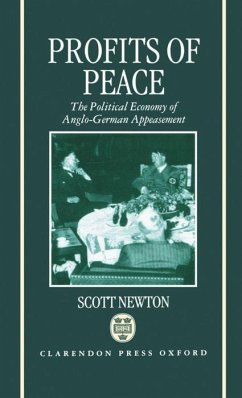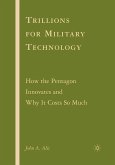He argues that the Hess affair represented the appeasers' last throw: the subsequent entry of the USSR and the USA into the conflict guaranteed the impossibility of a separate Anglo-German settlement, and combined with war socialism at home to open the door to a new era characterized by the welfare state and the Anglo-American special relationship. This is the first major study to provide a thorough analysis of the domestic political and economic background to appeasement, and to explain fully the reasons behind the persistence of the appeasement lobby even beyond the outbreak of war.
This bold new interpretation of Anglo-German appeasement challenges existing accounts, both orthodox and revisionist, by focusing on the economic motivations behind appeasement rather than on the workings of foreign policy. Scott Newton argues that appeasement stemmed from the determination of interwar administrations, particularly that of Neville Chamberlain, to protect the liberal-capitalist status quo established on the collapse of Lloyd George's attempts at reconstruction after 1918. Newton shows that the Government, aided and abetted by the Bank of England, the City, and large-scale industry, maintained its search for detente well beyond the outbreak of war, up until Churchill became Prime Minister in May 1940. The author goes on to reveal that certain circles within the establishment loyal to the prewar order continued their efforts to reach agreement with Germany even after 1940. The Hess affair represents the appeasers' last throw: the subsequent entry of the USSR and the USA into the conflict guaranteed the impossibility of a separate Anglo-German settlement, and combined with war socialism at home to open the door to a new era characterized by the welfare state and the Anglo-American special relationship.
Hinweis: Dieser Artikel kann nur an eine deutsche Lieferadresse ausgeliefert werden.
This bold new interpretation of Anglo-German appeasement challenges existing accounts, both orthodox and revisionist, by focusing on the economic motivations behind appeasement rather than on the workings of foreign policy. Scott Newton argues that appeasement stemmed from the determination of interwar administrations, particularly that of Neville Chamberlain, to protect the liberal-capitalist status quo established on the collapse of Lloyd George's attempts at reconstruction after 1918. Newton shows that the Government, aided and abetted by the Bank of England, the City, and large-scale industry, maintained its search for detente well beyond the outbreak of war, up until Churchill became Prime Minister in May 1940. The author goes on to reveal that certain circles within the establishment loyal to the prewar order continued their efforts to reach agreement with Germany even after 1940. The Hess affair represents the appeasers' last throw: the subsequent entry of the USSR and the USA into the conflict guaranteed the impossibility of a separate Anglo-German settlement, and combined with war socialism at home to open the door to a new era characterized by the welfare state and the Anglo-American special relationship.
Hinweis: Dieser Artikel kann nur an eine deutsche Lieferadresse ausgeliefert werden.








